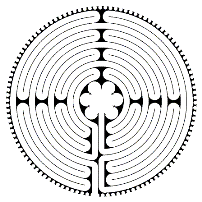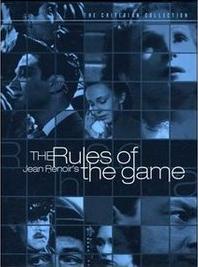A. Where are you coming from?
- When making a decision, what is the best way to state the issue?
- What are you certain about?
- What do you believe in that you may be willing to change?
- What is the best way to help someone change?
- Since someday we, and the companies we work with, will die, what can we do to fulfill our desire to live?
- What issues do you want your children to hear your decisions about before you die?
- What gift have you received that will enhance the way you manage change in the coming year?
- At a masquerade ball, what mask would you wear?
- Do you know of a better way to read a book to help you make a decision to change?
- Of all the people you know, dead or alive, who is the authority figure you most respect and follow?
- Why are we reluctant to make decisions?
- What's your type?
- Who is the holiest person you know?
- Who is the wisest person you know?
- Who is the best teacher you have ever had and why?
- What is your favorite quotation and why?
- What is your favorite movie and why?
- What is your favorite novel and why?
- Is truth the measure of facts and the criteria for your reasoning or do you prefer working with fallacies?
- Between your reason, your emotions, and your will, which part of you should hold the reigns to the other two?
- How does love influence your process of making changes?
- Have you changed your world view over the course of your career(s)?
- In today's marketplace or even in our personal lives, does right make might or might make right?
- How are you doing in your efforts to really achieve your childhood dreams?
- CHANGE MANAGEMENT: What or who is our worst enemy?
- In change management, is anything supposed to be hidden or is it better to be fully transparent in your approach?
- In the process of making a decision, when do you become aware of your unconscious agenda that may influence the outcome?
- In managing change, are we, as co-workers and social human beings, destructively seduced by the vain longings for certainty, utility, and ease that modern philosophical methods have promised since the 1600s?
- What addictively enslaving behaviors are disintegrating the global marketplace, our societies or our individual lives?
- Does psychological analysis provide you with the only real answers, after all else is said and done?
- How does any form of change management that enables only changes in perceived behavior, but not in substance, amount to anything more than a modern form of vanity?
- Is self-deception in change management unforgivable?
- Are our desired, but unnecessary, diversions real solutions or merely ways to kill time?
- Is indifference to change ultimately the most stupid of all possible responses?
- Is passionate truth-seeking the only way to address our human condition and overcome the dual obstacles of diversion and indifference in change management?
- Why do people fear success?
- What do you prefer: success or happiness?
- What makes people so unhappy with work?
- Why the continuing paradox of human greatness and human unhappiness in the global workplace?
- Do you have a deep understanding of what or who drives you to seek changes that result in more success or happiness?
- CHANGE MANAGEMENT: Is happiness our ultimate goal?
- Common-sense philosophy for managing change?
- When you contend with others about judgments based on facts and reasons, what counterfeit arguments have you run into?
- Are these 10 philosophical mistakes the result of oversights?
- As part of change management, do you agree that there are ethical consequences of co-workers denying the applicability of the principle of non-contradiction to their work, if not to the lives?
- Are you playing with a full deck when you argue for change?
In managing change, is the use of reason alone ultimately just another form of vanity when we do not admit the more dominating power of human imagination? - When asked to interpret written words, what rules, if any, do you use to assure the reliability of your interpretation?
- When do you have the best insights while you are in the process of making a decision?
- When do you have the worst oversights while you are in the process of making a decision?
- CHANGE: Instead of sharing everyday to-do lists, would you share your everyday list of what NOT-TO-DO?
- What insight about change and decision-making do you see portrayed in the movie "High Noon"?
- What insight about change and decision-making do you see portrayed in the movie "It's A Wonderful Life"?
- What insight about change and decision-making do you see portrayed in the movie "Witness"?
- What insight about change and decision-making do you see portrayed in the movie "Lawrence of Arabia"?
- What insight about change and decision-making do you see portrayed in the movie "Experiment in Terror"?
- How do you make a decision when your process is looking to find it and waiting for it to emerge?
- How do you use prayer, if at all, when you make a decision and your process is looking to find the answer and waiting for the answer to emerge?
- When you have not prayed about it before hand, what characteristics your decisions suggest to you that the answer you have discerned is the right one?
- When praying about an issue for decision, does God always give you an answer?
- Assuming miracles happen, what is their chief limitation with respect to use in change management?
- What, if anything, does encountering beauty have to do with change management?
- What is the best way you have found to tell others what your real decision is?
- Do you have a novel in you about change management?
- When making a decision, do you always determine what you are willing to risk to gain what you can only hope for?
- HUMAN JUSTICE ON THE GLOBAL LEVEL?
- Are efforts to manage change effectively limited by where the truth that lies in the plurality of the world's organized and institutional religions?
- RELIGION: What's So Great About Christianity? (Disputation)
- DISPUTATION: Is disputation the best way to focus participants in change management? (Disputation)
L. What is signaling you that the decision you discern is the right one?
Please let me know what you think.
Thanks.
John
PS: You may also be interested in some of the responses I first received to my question: "Would you like to participate in the online Decision-Making: A Reel Retreat?"



















































